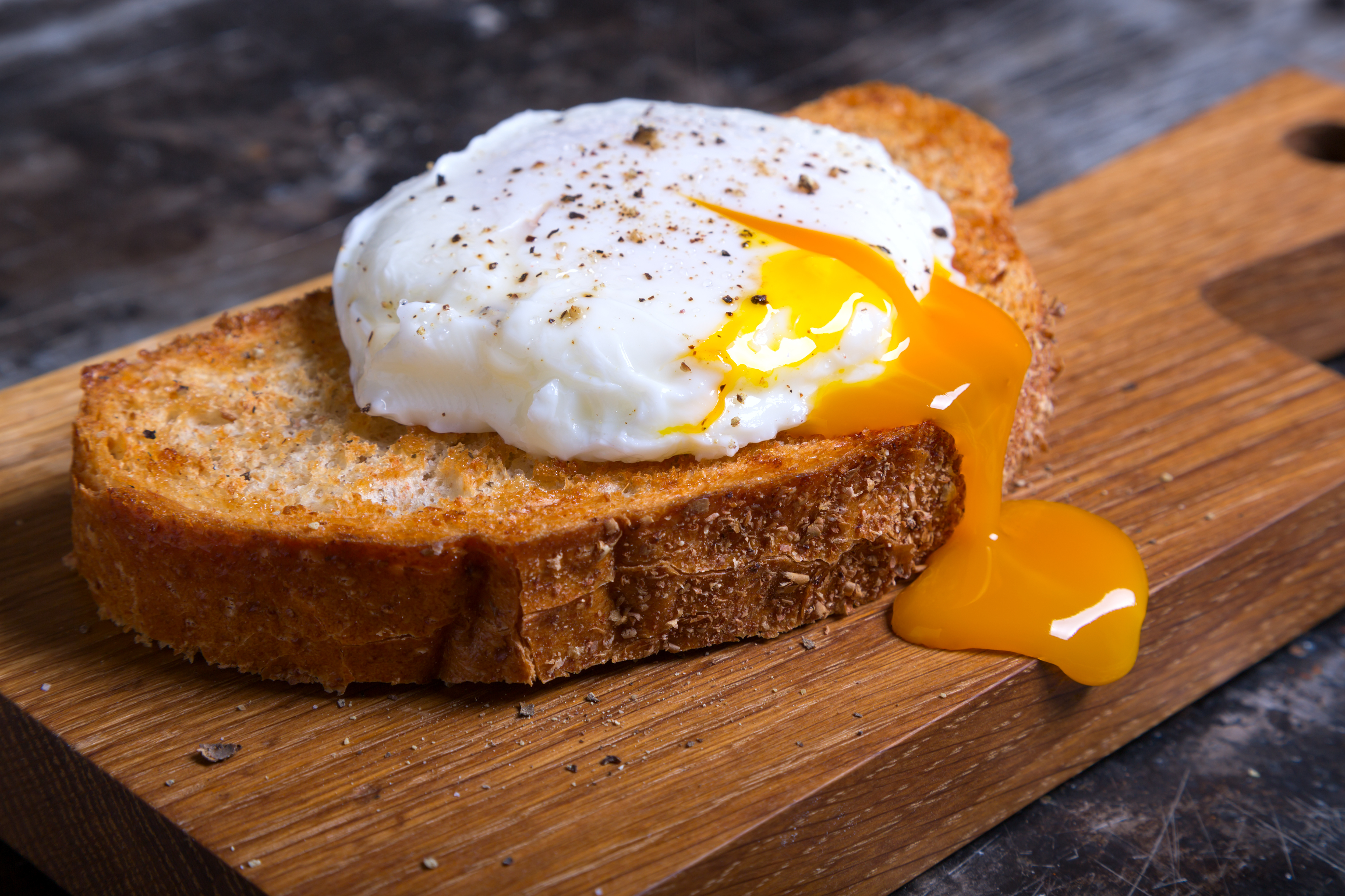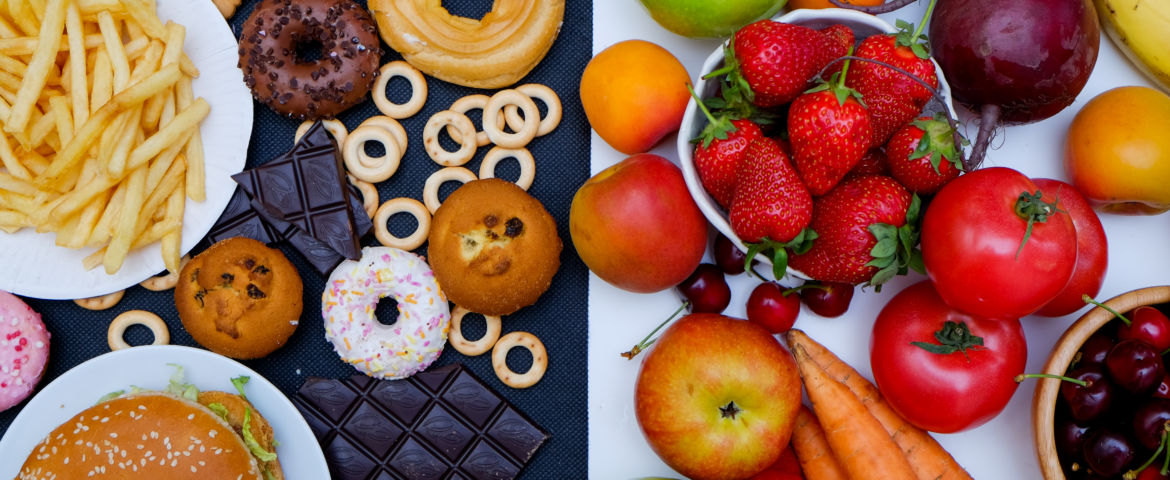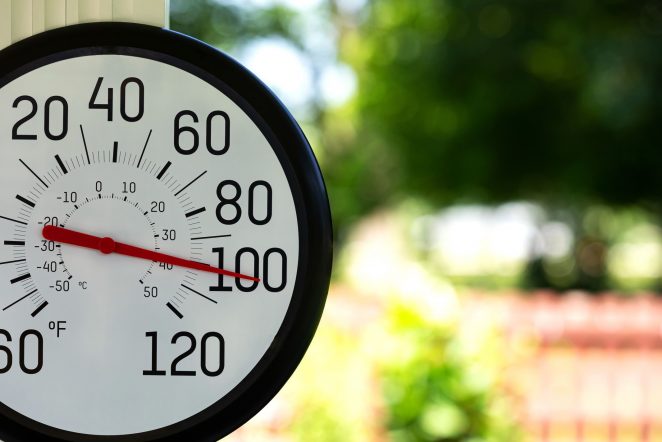Is eating after 8 p.m. a bad idea (hint: it’s probably fine)? Is high fructose corn syrup worse than sugar? Is dairy bad for you? The jury is still out on many food myths, but some have clear-cut answers.
If eating healthier is something you’re focusing on — we’re busting food myths and getting to the bottom of these five popular food superstitions.
Myth: You can’t eat “bad” foods like pizza or ice cream if you want to lose weight.
Fact: It’s all about moderation. If you’re trying to lose weight, calories-in-calories-out is generally the standard rule to follow. That is, you need to take in fewer calories than you expend. You don’t have to completely deprive yourself of your favorite foods during your weight loss journey, but you should be conscious of the amount you eat and how you balance it with healthier, more nutrient-dense options. You can still achieve your weight loss goal with a slice of pizza on occasion–just make sure to eat just one slice instead of half a pie, and pair it with a salad instead of cheese-filled breadsticks. And if ice cream is what you’re craving, try low-fat frozen yogurt or fruit-dense sorbet.
Now, that’s not to say all calories are created equal; if you have a set amount of calories you can eat per day to lose weight, a meal of lean protein, healthy fats and plenty of greens will leave you feeling satiated much longer than a cupcake with the same amount of calories. And remember, exercising gives you extra calories for your daily budget. So if you go on a 3 mile run or ride a bike for an hour, you can definitely reward yourself to a small portion of a favorite treat. You’ve earned it!

Myth: Gluten is unhealthy and you should avoid it.
Fact: Gluten isn’t the enemy you may think it is. If you don’t have celiac disease or gluten sensitivity, cutting out this protein found in wheat, barley and rye grains isn’t likely to yield many positive health results. If you think you might have a health issue related to gluten, it’s always best to speak with your health care provider before cutting out an entire food group. After all, many foods that include gluten are also good sources of fiber and various vitamins and minerals.
Myth: A low or no-fat diet is healthier than one higher in fats.
Fact: Certain kinds of fats are actually good for you. There are “good” fats and “bad” fats; experts agree you should avoid saturated and trans fats found in processed foods. “Good” fats include polyunsaturated and monounsaturated fats, and can be found in healthy foods like salmon, avocado and olive oil. In fact, polyunsaturated isn’t just a nice-to-have in a healthy diet — this particular kind of fat is essential for basic body functions. Polyunsaturated fats include omega-3 fatty acids, which may even help prevent and treat heart disease and stroke.

Myth: Eggs are bad for your cholesterol levels.
Fact: Poor eggs have gotten quite the rep over the years — it feels like the views on whether or not they’re bad for our health are perpetually mixed. Current studies say that eggs are probably good for you, but there’s not enough research out there to say so conclusively. The general consensus among experts is that dietary cholesterol, found in eggs and other foods, has a very small effect on your body’s LDL cholesterol levels (that’s the bad kind of cholesterol) and your risk of cardiovascular disease when compared to other lifestyle factors like weight, gender and activity level. Additionally, eggs are a fantastic source of protein and are dense in nutrients. In other words: a scrambled egg for breakfast is a fine choice. Just be sure to cook your eggs with healthier olive oil instead of butter, and try adding spinach, tomatoes and other nutrient-rich veggies for flavor instead of piling on the cheddar cheese and bacon.
Myth: Some foods, like celery, burn more calories than they contain.
Fact: Sorry, but no reputable studies have shown this to be true. We’ve all heard the rumor that you burn more calories eating and digesting foods like celery, but science says that’s not true. Your total daily energy expenditure does include energy used for digesting food, but a full day’s digestion doesn’t use enough energy to make any kind of food have “negative calories.” But just because celery and other foods aren’t burning more calories than they’re providing doesn’t mean you should avoid them–these low-calorie foods still make for great healthy snacks. Especially combined with high protein dips like hummus or peanut butter.
Interested in learning more about healthy eating habits? Read more articles on healthy foods and nutrition here on ThinkHealth, or, if you’re a Priority Health member, you can access more healthy living tips and tricks via the Wellbeing Hub.
The world of healthy eating is full of myths, superstitions and old wives’ tales, but a little research can go a long way in figuring out what’s true and what’s not. And when all else fails, it’s usually a good rule of thumb to eat a little less and move a little more.


